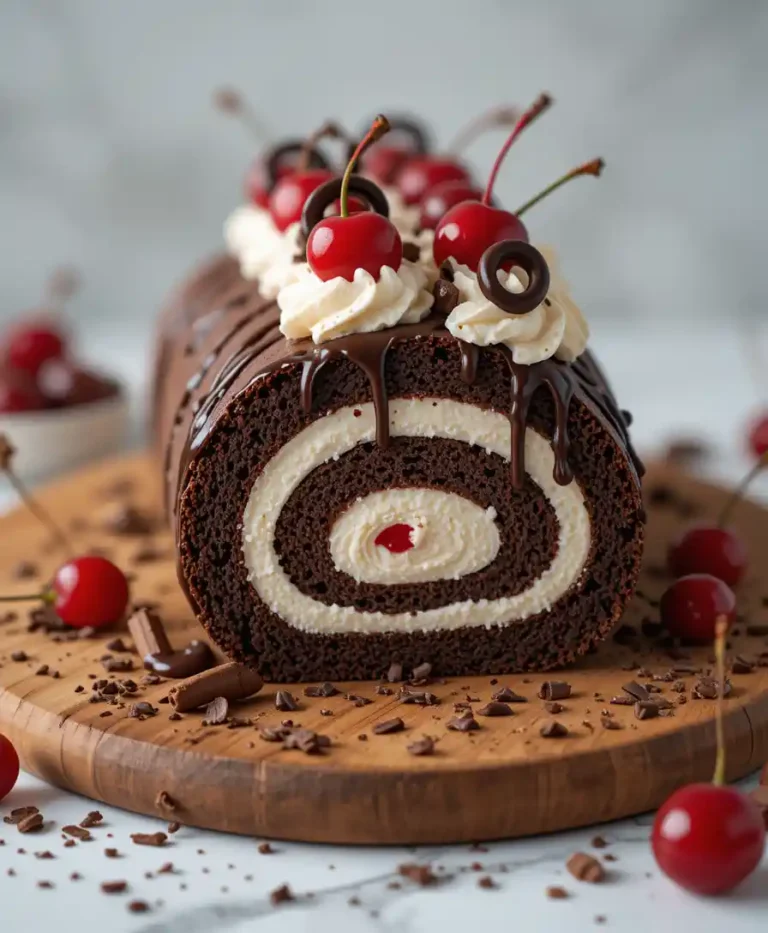Mushroom Tea
Mushroom tea might be the wildest health trend you haven’t tried yet—but totally should.
Ever feel drained, foggy, or just straight-up tired of chugging coffee like it’s a lifeline? Yeah, you’re not alone. While caffeine gives you a quick buzz, it usually crashes hard, and let’s be real, no one has time for that 3 p.m. slump.
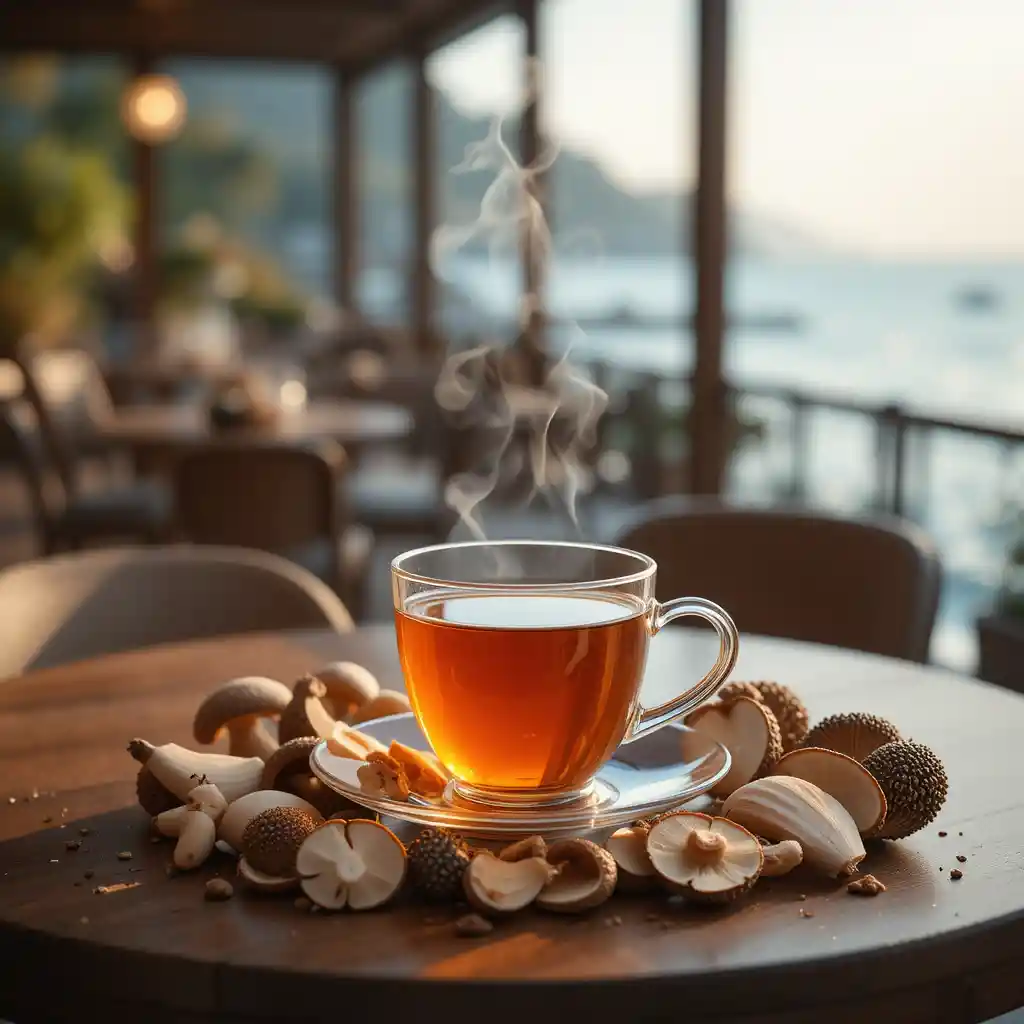
Enter mushroom tea—a centuries-old brew that’s making a serious comeback, and not just with yoga lovers and health freaks. From boosting brainpower and calming stress to giving your immune system a serious high-five, this earthy, feel-good tea is packed with benefits. No, it won’t make you hallucinate (unless you want it to—we’ll get into that too).
In this post, you’ll get the full scoop on what mushroom tea is, how it works, and how you can whip it up at home without needing to forage in the woods or spend a fortune at a wellness store. Whether you’re curious about lion’s mane for focus or reishi for chill vibes, you’ll find something here that speaks to your body and your taste buds.
Let’s dive in—your next favorite brew is waiting.
Table of Contents
What Is Mushroom Tea? (Quick Breakdown)
Alright, let’s break it down: mushroom tea is exactly what it sounds like—a warm, earthy brew made by steeping dried mushrooms (or mushroom powder) in hot water. But don’t worry, it doesn’t taste like the mushrooms you toss on a pizza. Depending on the type you use, the flavor can be woodsy, slightly bitter, or surprisingly smooth, especially with a little honey or lemon.
This isn’t some new TikTok trend, either. Mushroom tea has deep roots in traditional medicine from Asia, Siberia, and Indigenous cultures who’ve used it for centuries to boost energy, heal the body, and calm the mind.
Today, folks are drinking mushroom tea for all kinds of reasons—better focus, stronger immunity, less stress, more energy. Whether you’re sipping chaga, lion’s mane, reishi, or even magic mushrooms (more on that later), each kind has its special benefits.
Bottom line? Mushroom tea isn’t just a drink—it’s a functional wellness ritual in a cup. And it might just be the upgrade your daily routine has been missing.
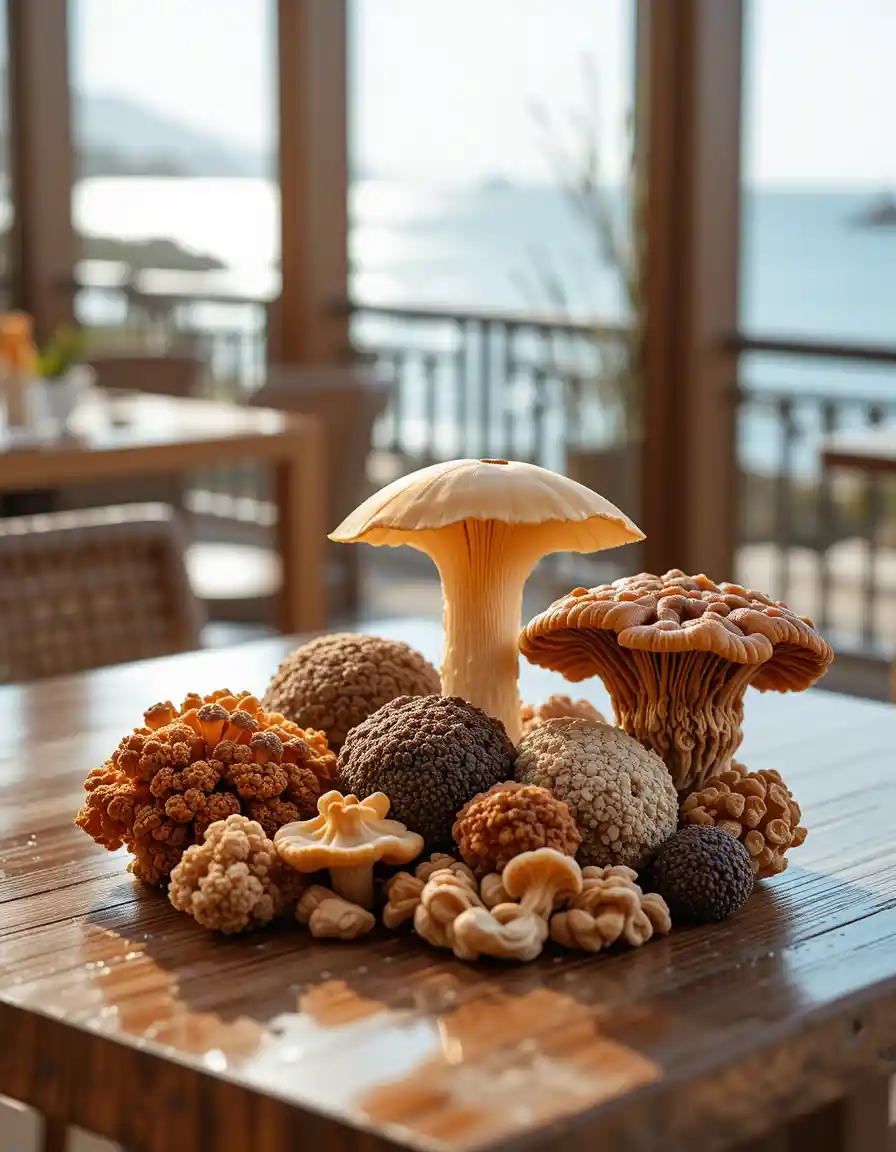
Types of Mushrooms Used in Tea (And What They Do)
Not all mushrooms are created equal, especially when it comes to mushroom tea. Different types offer different benefits, and the effects can range from calming your nerves to sharpening your focus. Here’s a quick breakdown of the most popular mushrooms you’ll find in tea blends today:
1. Reishi
Reishi is your go-to for relaxation. Nicknamed the “mushroom of immortality,” this one’s been used for centuries to reduce stress, support sleep, and balance mood. If you need to unwind after a long day, reishi tea can help you chill, naturally.
2. Chaga
Chaga is packed with antioxidants. It’s great for immune support and is believed to reduce inflammation and fight off free radicals. The taste is rich and earthy—almost like a mild coffee. Perfect for a healthy morning ritual.
3. Cordyceps
Need more energy without the jitters? Cordyceps is known for boosting stamina, improving oxygen flow, and supporting athletic performance. Great for before a workout or as a midday pick-me-up.
4. Psilocybin (Magic Mushrooms)
This one’s in a category of its own. Psilocybin mushrooms are used for their psychedelic effects and are not legal in most places. That said, some people brew magic mushroom tea for microdosing or guided therapeutic experiences. Always research your local laws before exploring this option.
Each of these mushrooms brings something unique to the cup. Some blends even combine two or three types for maximum impact. Whether you’re after mental focus, better sleep, or a stronger immune system, mushroom tea offers a natural, plant-based way to level up your daily routine.
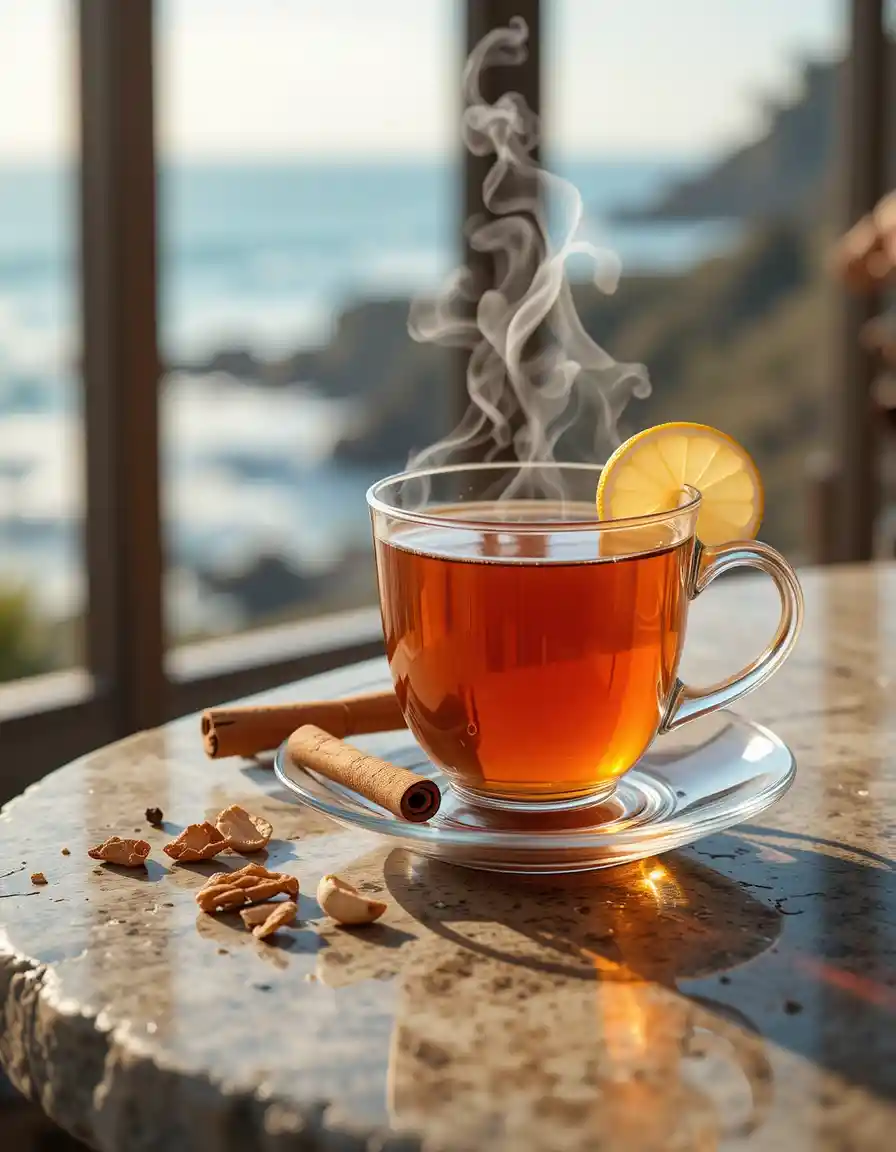
Other Unique Benefits of Mushroom Tea
While the usual benefits like focus, immunity, and stress relief get most of the spotlight, mushroom tea has some lesser-known perks that deserve attention, especially if you’re looking for more than just a health boost. Let’s dig into a few surprising ways this earthy brew can level up your lifestyle:
1. Supports Hormonal Balance in Natural Ways
Certain adaptogenic mushrooms like reishi help regulate cortisol levels—your body’s main stress hormone. By keeping cortisol in check, mushroom tea may help reduce hormone-related symptoms like fatigue, irritability, and even irregular sleep cycles. This can be a natural support tool for both men and women dealing with hormonal ups and downs.
2. May Improve Creativity and Flow States
This isn’t just about productivity. Many users report that drinking lion’s mane or microdosing psilocybin teas (where legal) helps them tap into creativity, intuition, and that elusive “flow” state. Whether you’re writing, designing, or solving problems, mushroom tea could help get your brain in the zone, without overstimulation.
3. Helps Break the Coffee Habit (Without Withdrawal)
Let’s be real—kicking caffeine is tough. But mushroom tea offers a smoother ride. It provides steady energy without the spikes and crashes, helping people transition off coffee without the usual headaches, irritability, or afternoon slumps. That alone makes it a game-changer for folks trying to rebalance their daily routine.
4. Supports Lung and Respiratory Health
This one’s rarely talked about: Cordyceps mushrooms have been traditionally used to support lung function and oxygen uptake. For people with asthma, seasonal allergies, or even athletes working on endurance, this type of mushroom tea might offer an extra layer of support for breathing easily.
5. Enhances Cold-Weather Resilience
In colder climates, teas made with chaga or turkey tail mushrooms have been historically used to help people stay strong and alert through long, harsh winters. Their antioxidant and warming properties may help the body adjust to seasonal shifts, both physically and mentally.
6. May Support Mental Health Recovery
There’s growing interest in psilocybin mushroom tea (where legal) as a tool for mental health therapy, including depression, anxiety, and PTSD. While more research is still emerging, many early reports and clinical trials suggest that in guided settings, this tea can promote emotional healing and deeper introspection.
7. Promotes Mindful Drinking Habits
Swapping out wine or beer for a calming cup of mushroom tea in the evening can shift your mindset from numbing out to tuning in. It’s not just about what you’re drinking—it’s the ritual. Slowing down, being present, and making tea a part of your wind-down routine creates space for reflection and self-care.
These unique benefits of mushroom tea aren’t always front and center, but they matter. Whether you’re trying to reset your habits, improve your creativity, or support your body naturally, there’s more to this humble brew than meets the eye.
My Latest Recipes
How to Make Mushroom Tea at Home (Creative & Mindful Brewing)
Making mushroom tea isn’t just about following a recipe—it’s about crafting a mindful experience that nourishes both body and soul. If you want to take your mushroom tea game to the next level, here’s an unconventional yet simple guide to get it right at home:
Step 1: Choose Fresh or Wild-Harvested Mushrooms (If Possible)
While store-bought dried mushrooms work perfectly, hunting down fresh or wild-harvested mushrooms adds a whole new dimension of flavor and potency. If you can find fresh lion’s mane or reishi at a local market or farmers’ co-op, give it a try. Just slice thinly and proceed to brew.
Step 2: Create a Mushroom “Tincture” First
Instead of boiling your mushrooms directly, try making a tincture: soak crushed dried mushrooms in room temperature filtered water overnight (about 8-12 hours). This slow extraction pulls out delicate water-soluble compounds and preserves heat-sensitive nutrients.
Step 3: Double-Extract for Maximum Benefits
Once your tincture is ready, heat it gently for 10 minutes to activate and concentrate the compounds. Then, separately, do a hot decoction by simmering the same mushrooms in water for 30 minutes to extract the tougher, more resilient compounds like beta-glucans. Combine both liquids for a full-spectrum mushroom tea.
Step 4: Add Adaptogenic Boosters
To amplify effects, blend your mushroom tea with adaptogenic herbs like ashwagandha, holy basil, or ginseng. This combo supports your stress response and balances energy naturally.
Step 5: Sweeten with Natural Ferments
Skip regular sugar—try adding a spoonful of raw honey, maple syrup, or even a splash of kombucha for a subtle tang and probiotics. This can enhance digestion and flavor complexity.
Step 6: Infuse Citrus and Spices Mindfully
Add a strip of lemon or orange peel, a cinnamon stick, or crushed cardamom pods to your brew during simmering. These not only enhance flavor but also add antioxidants and digestive benefits.
Step 7: Practice Mindful Sipping
Pour your mushroom tea into your favorite mug. Before your first sip, take a moment to breathe in the aroma, appreciate the ritual, and set an intention for the experience—whether it’s focus, calm, or energy.
Bonus Idea: Make Mushroom Tea Ice Cubes
Brew a strong batch of mushroom tea, let it cool, then pour into ice cube trays. Use these cubes in smoothies, iced teas, or to chill other drinks without diluting the flavor.
By taking this more intentional, layered approach to brewing your mushroom tea, you unlock a richer flavor profile and maximize the health benefits. It turns a simple cup into a personal ritual you look forward to.

Does Mushroom Tea Get You High?
The short answer? It depends on the type of mushroom you’re using.
Not all mushroom teas are created equal—some are for wellness, others are for a whole different kind of journey. Let’s break it down so you know exactly what to expect when sipping your next cup.
1. Functional Mushroom Tea: No, You Won’t Get High
If you’re drinking lion’s mane, chaga, reishi, or cordyceps, you’re not going to get high. These are non-psychoactive functional mushrooms used for things like boosting focus, reducing stress, or improving immunity. You’ll feel calm, balanced, or energized, depending on the blend, but not “high” in the traditional sense.
Think of it more like a body-and-mind reset, not a trip.
2. Psilocybin Mushroom Tea: Yes, But With a Big Disclaimer
If your tea is made from psilocybin mushrooms (aka “magic mushrooms”), that’s a completely different story. Psilocybin is a naturally occurring psychedelic compound that can cause hallucinations, altered thinking, emotional shifts, and deep introspection.
In tea form, psilocybin often kicks in faster than when you eat the mushrooms raw, sometimes within 15 to 30 minutes. The experience can last several hours, and it may be mild or intense depending on the dose, setting, and your mindset.
Important:
- Psilocybin mushrooms are illegal in many countries and U.S. states.
- Always check your local laws before attempting to brew or consume them.
- If you do use them, do so in a safe, supported, and intentional environment.
3. Microdosing with Psilocybin Tea
Some people choose to microdose—taking a very small amount of psilocybin tea (around 0.1 to 0.3 grams of dried mushroom) to boost mood, creativity, or mental clarity without any strong psychedelic effects. You won’t feel high, but you might feel more “in the flow.”
However, this still falls in a legal gray area depending on where you live.
My Latest Recipes
Final Word: Know Your Mushrooms
If you’re looking for a health boost, stick with functional mushrooms—you’ll get all the benefits without worrying about legality or losing control. But if you’re exploring psilocybin tea for emotional healing or self-discovery, it’s crucial to do it responsibly, legally, and preferably under guidance.
Bottom line:
Mushroom tea doesn’t get you high—unless you’re intentionally using a psychedelic variety. Always know what you’re brewing before you take that first sip.
Side Effects & Safety Tips
While mushroom tea is generally considered safe—especially when made with functional mushrooms like lion’s mane, reishi, or chaga—it’s still important to know what you’re putting in your body. Even natural ingredients can come with side effects if you overdo them or mix them incorrectly.
Here’s what you need to know to stay safe and sip smart:
Common Side Effects of Mushroom Tea
Most people don’t experience side effects from functional mushroom tea when taken in moderation, but some might notice:
1. Upset Stomach or Nausea
Especially with reishi or chaga, some people feel queasy if they drink it on an empty stomach or make it too strong.
Tip: Start with a small amount and pair it with food if you’re sensitive.
2. Drowsiness or Light Fatigue
Mushrooms like reishi promote relaxation. If you drink them during the day, you might feel a little too relaxed or sleepy.
Tip: Stick to nighttime use for calming blends.
3. Digestive Issues (Rare)
If you’re new to adaptogens, your gut might need a little time to adjust. This usually passes within a few days.
Tip: Drink plenty of water and give your body time to adapt.
4. Mild Headaches
This is rare, but some users report headaches when using high doses or combining mushroom tea with other supplements.
If You’re Using Psilocybin Mushroom Tea
If you’re brewing tea with psilocybin mushrooms (magic mushrooms), the potential effects are very different:
- Visual and auditory hallucinations
- Emotional intensity (both positive and negative)
- Nausea or body discomfort at onset
- Confusion, anxiety, or panic (especially in high doses or unfamiliar environments)
Important:
Never use psilocybin tea if you’re feeling anxious, are alone and unsupported, or have a history of mental health conditions without guidance. Set and setting matter a lot.
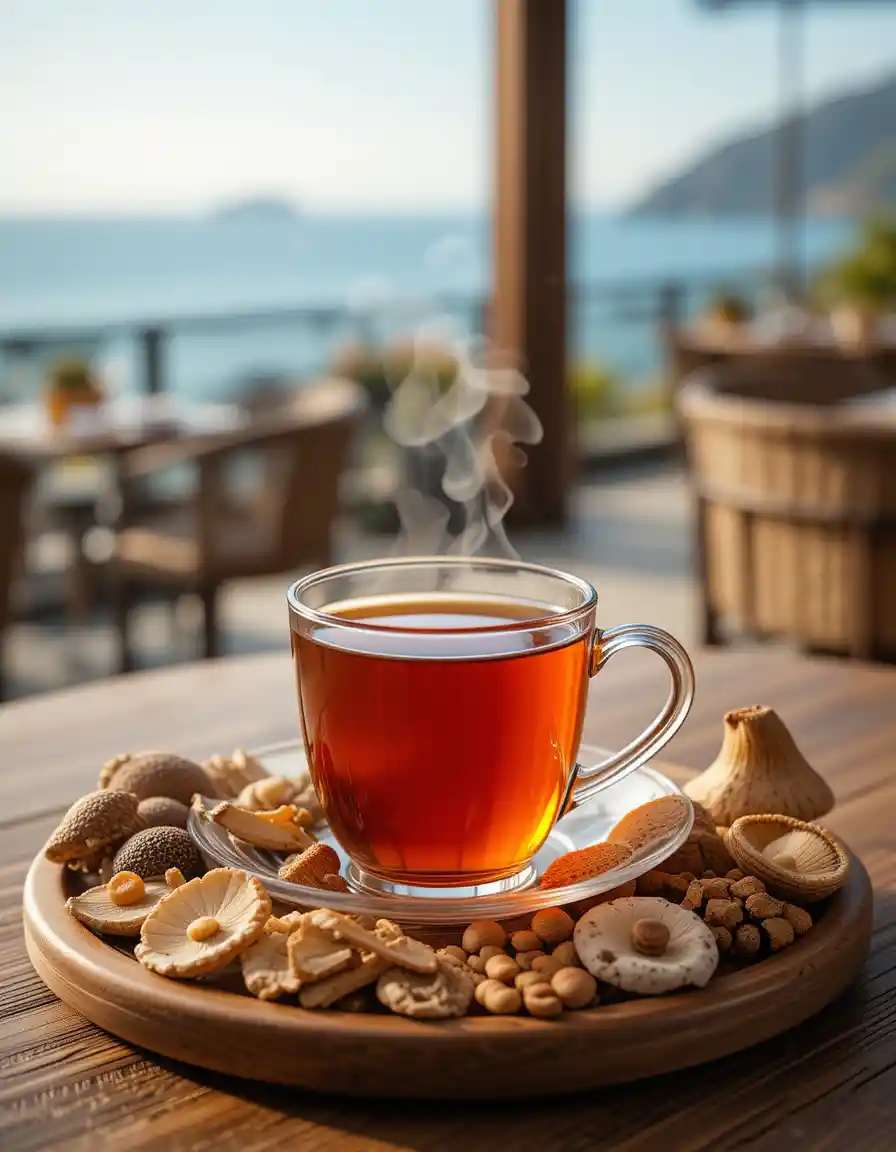
Safety Tips for Drinking Mushroom Tea
Here’s how to stay safe and make the most of your mushroom tea experience:
1. Start Small
Especially if it’s your first time, go with a mild dose. You can always build up slowly as you learn how your body responds.
2. Know Your Source
Buy your mushrooms from reputable brands. Look for organic, lab-tested products that are clearly labeled. Skip the sketchy online shops or no-name sellers.
4. Check for Allergies or Sensitivities
If you have mold or mushroom allergies, be careful. Always test with a small amount first to rule out any adverse reactions.
5. Stick to One Type at a Time
Especially early on, don’t mix multiple types of mushrooms until you know how each one affects you. Keeping it simple helps you track what’s working.
6. Store It Right
If you’re brewing in batches, keep your tea in a clean, airtight container in the fridge and drink it within 2–3 days. Spoiled tea can upset your stomach.
Final Thought: Respect the Ritual
Whether you’re sipping for energy, clarity, or calm, mushroom tea is powerful—but subtle. You don’t need to overdo it. With a little intention and attention, it can be a daily ritual that works with your body, not against it.
My Latest Recipes
Vinícius Jr. Transfer to Chelsea: Truth Behind the Rumor, Facts & Insights
Before You Buy Exercise Equipment – Save Money & Time
Best Time to Drink Mushroom Tea
The best time to drink mushroom tea depends on why you’re drinking it. Since different mushrooms have different effects—some energize, others relax—it’s important to time your tea right to get the full benefit without throwing off your rhythm.
Let’s break it down by mushroom type and purpose:
1. Morning: For Energy and Focus
Best mushrooms: Lion’s mane, cordyceps, chaga
If you’re looking to start your day with mental clarity and a clean energy boost (without caffeine crashes), morning is the sweet spot.
- Cordyceps is great pre-workout or for long workdays, giving you stamina and sharper oxygen flow.
- Chaga delivers antioxidants and supports your immune system when taken regularly in the morning.
Pro tip: Replace your morning coffee with a cup of lion’s mane + chaga tea for a cleaner, smoother start.
2. Afternoon: For Sustained Energy or Midday Reset
Best mushrooms: Cordyceps, lion’s mane, turkey tail
The afternoon slump is real, but mushroom tea can help keep your brain sharp and your energy steady.
- Try cordyceps instead of a second coffee to keep energy up without interrupting your sleep later.
- Turkey tail offers gut and immune support if you’ve had a heavy lunch or feel sluggish.
Pro tip: Make a lighter brew with a splash of lemon or mint for a refreshing twist.
3. Evening: For Calm, Recovery, and Better Sleep
Best mushrooms: Reishi, chaga
Evenings are the perfect time for relaxing with mushroom teas that support the body’s recovery processes.
- Chaga, though energizing during the day, can also help reduce inflammation and support recovery at night.
Pro tip: Make your tea part of your wind-down ritual—dim the lights, unplug, and sip reishi tea 30–60 minutes before bed.
4. Microdosing or Psychedelic Use: Early Morning or Guided Sessions
Best mushrooms: Psilocybin (where legal)
If using psilocybin mushroom tea, timing is crucial.
- Always prepare in a safe space, ideally with guidance, and avoid nighttime use unless part of a supported journey.
Best Time Recap:
| Goal | Best Time | Suggested Mushrooms |
|---|---|---|
| Focus & productivity | Morning | Lion’s mane, chaga |
| Natural energy | Morning–Afternoon | Cordyceps, chaga |
| Gut & immune support | Afternoon | Turkey tail, chaga |
| Stress relief & sleep | Evening | Reishi, chaga |
| Psychedelic experience | Morning (guided) | Psilocybin (where legal) |
Final Tip: Listen to Your Body
Your best time might not match someone else’s. Start slow, try different times, and notice how your body responds. Mushroom tea works best when it’s consistent and intentional, not rushed or random.

Where to Buy Mushroom Tea
Now that you know how to make it and when to drink it, the big question is—where can you buy quality mushroom tea that works?
Not all mushroom teas are created equal. Some are packed with real, functional extracts, while others are weak blends with barely any mushroom content. If you want real results—focus, energy, calm, or immune support—you need to choose your source wisely.
Here’s where to look and what to watch for:
1. Online Wellness Brands (Best for Quality)
Top picks:
- Four Sigmatic – One of the most trusted names in functional mushroom products. Their lion’s mane and reishi blends are great for beginners.
- FreshCap Mushrooms – Offers organic mushroom teas, powders, and extracts with lab-tested potency.
- MUD\WTR – Coffee alternative made with a blend of mushrooms and adaptogens. Tastes great and includes a full routine starter kit.
- Dirtea – UK-based, expanding fast, known for pure chaga, cordyceps, and reishi powders.
- Om Mushroom Superfood – Easy-to-use mushroom drink mixes and capsules, available online and in many U.S. health stores.
Why shop here:
These brands offer organic ingredients, lab testing, and full transparency, so you know exactly what you’re putting in your body.
2. Amazon and Online Marketplaces (Convenient, but Vet the Brand)
Yes, Amazon has a wide selection of mushroom tea, but not all of it is high quality. Stick to brands with thousands of reviews, clear labeling (with species names like Ganoderma lucidum for reishi), and certifications like organic or third-party tested.
What to avoid:
- Generic brands with no website
- Products without full ingredient lists
- Anything that seems too cheap to be real
3. Local Health Food Stores and Co-ops
If you prefer to shop in person, check your local:
- Whole Foods
- Sprouts
- Natural Grocers
- Community co-ops
Look for mushroom tea bags, powdered extracts, or even whole dried mushrooms in the tea or supplement section. Staff can often help you choose based on your goals.
4. Apothecaries and Herbal Shops
Smaller herbal shops and natural apothecaries often carry wild-harvested or small-batch mushroom teas—sometimes with unique blends you won’t find online. This is a great option if you want a more traditional, handcrafted tea experience.
5. Specialty Mushroom Farms or Foragers (For Whole Mushrooms)
If you want to make mushroom tea from scratch, go straight to the source. Some farms and certified foragers offer dried reishi, chaga, and lion’s mane mushrooms in bulk. Just make sure the supplier is experienced and certified, especially if they’re selling wild mushrooms.
What to Look for When Buying:
- Certified organic (no pesticides or fillers)
- Full-spectrum extract or fruiting body only (avoid products that use mostly mycelium on grain)
- Third-party lab tested for purity and potency
- Clear labeling (lists actual mushroom species and amounts)
- Positive, detailed reviews from real users
Final Tip: Don’t Fall for the Hype
If it sounds too magical or too cheap, it probably is. Stick with companies that focus on wellness, not just trends. Good mushroom tea isn’t just about the flavor—it’s about the quality of the extract, the care in sourcing, and the intention behind the brew.
My Latest Recipes
Conclusion: My Experience with Mushroom Tea
After experimenting with different types of mushroom tea—from the bold, grounding flavor of chaga to the calm-inducing smoothness of reishi—I can honestly say it’s become a powerful part of my daily routine. Not only does it help me feel more focused and balanced, but it’s also a great reminder to slow down and be intentional with what I put in my body.
Whether you’re here for energy, calm, immunity, or even spiritual growth, there’s a mushroom tea out there that fits your needs. It’s not just a trend—it’s a tradition backed by centuries of wisdom and modern science. And once you make it part of your lifestyle, it might surprise you how much it shifts the way you feel, think, and live.
Thank you so much for taking the time to read this guide. I hope it inspired you to try mushroom tea in your way—whether that’s a DIY brew at home, a morning cup for clarity, or a cozy bedtime blend.
If you enjoyed this post, be sure to check out my other wellness tea guides, herbal recipes, and natural living tips. There’s always something new steaming here on the blog.
Wishing you good health, clear focus, and a peaceful cup ahead.
See you in the next article!
Related Recipes You Will Love
Frequently Asked Questions About Mushroom Tea
1. How long does mushroom tea take to work?
You might feel calming or energizing effects within 30 to 60 minutes, especially if drinking reishi or lion’s mane. Consistent use over time is where the real benefits start to show, especially for immunity, focus, and mood.
2. Can mushroom tea help with anxiety?
Yes. Reishi mushroom tea is known for its calming properties and is often used to help reduce stress and anxiety naturally, especially when consumed in the evening.
3. Where can I buy mushroom tea online?
You can buy organic mushroom tea from trusted brands like Four Sigmatic, FreshCap, or Om Mushroom Superfood. Always look for lab-tested, full-spectrum extracts for the best results.
4. Can I make mushroom tea with fresh mushrooms?
Absolutely. You can use fresh reishi, lion’s mane, or chaga mushrooms—just slice them thin and simmer longer. Fresh mushrooms add a deeper flavor and may be more potent when sourced properly.
5. Does mushroom tea go bad?
Yes, mushroom tea should be refrigerated and consumed within 2–3 days. Always store it in a clean, airtight container to keep it fresh and safe to drink.
Share your thoughts or questions about the recipe in the comments below!






